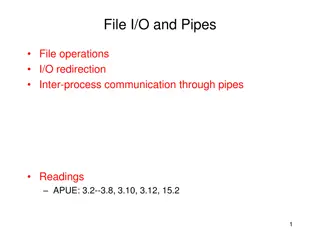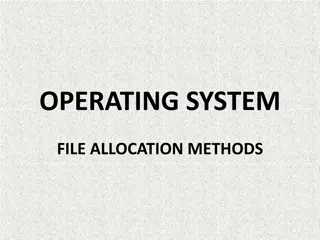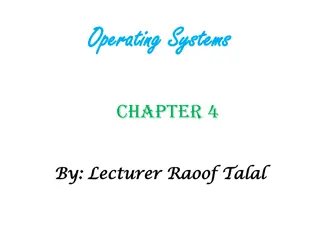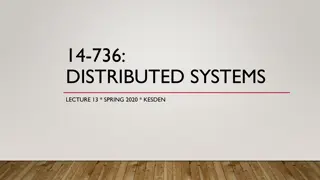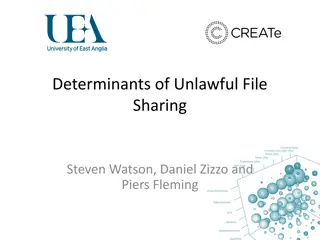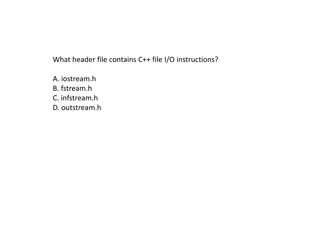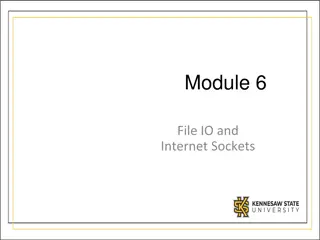Sentence Transformation Lessons - Simple to Complex
Learn how to transform sentences from simple to complex with practical examples and explanations. Enhance your English language skills by understanding the various structures and forms used in sentence transformation. Explore different scenarios and master the art of creating complex sentences from simple ones effectively.
Download Presentation

Please find below an Image/Link to download the presentation.
The content on the website is provided AS IS for your information and personal use only. It may not be sold, licensed, or shared on other websites without obtaining consent from the author.If you encounter any issues during the download, it is possible that the publisher has removed the file from their server.
You are allowed to download the files provided on this website for personal or commercial use, subject to the condition that they are used lawfully. All files are the property of their respective owners.
The content on the website is provided AS IS for your information and personal use only. It may not be sold, licensed, or shared on other websites without obtaining consent from the author.
E N D
Presentation Transcript
Introduction Md. Hasan Hafizur Rahman Lecturer & Head of the Department (English)
When it is morning, he gets up from sleep. In the morning he gets up from sleep. As he studies well, he will get A+. Studying well, he will get A+. What kind of change have you followed? Complex to simple
Our todays lesson is Transformation of sentence Simple to complex
Learning outcomes After we have studied this lesson, we will be able to hange from complex to simple
Complex sentence of As/Since/When with action verb will take the change as follows V4 (Verb +ing) +extension + principal clause When the thief saw the police, he ran away. Seeing the police he ran away. V4 extension Principal clause Since Mustafiz played well, he got the award (Make it simple). As he got a handsome amount, he bought a car (Make it simple
As/Since/When with Indefinite/continuous form will take the change as follows At the time of + possessive + v4+extension + principal clause When I was eating supper, the phone rang. At the time of my eating supper the phone rang. Change the sentences from complex to simple. As I was going to London, I took my passport . Since I was sleeping, I switched my mobile off . When they play football, we enjoy it.
As/Since/When with be verb (with same subject) will take the change as follows Being+extension + principal clause with main subject As the boy is poor, he has to do hard work for his family. Being poor the boy has to do hard work for his family Change the sentences from complex to simple. 1. Since the boy was meritorious, he made a good result. 2. As the man is old, he cannot bear the load of the bundle. 3. Since the baby is cute, everyone likes him very much. 4. When he was small, he was considered a minor to attend the party. 5. As he is an wise man, he is respected everywhere.
As/Since/When with be verb (with different subjects) will take the change as follows First subject +being+extension + principal clause Since the weather is very cold, there is no birds or animals in the area. The weather being very cold there is no birds or animals in the area. As the weather was unbearable, we left the place very soon Since the weather was too cold, no living being can stay here at all
If the complex is of As/Since/When with day daylight, night, 10am, structure will be noon, day daylight, night, 10am + principal clause Cave Hira Jabal-E-nur When it was daylight, we all came out of the cave. At daylight we all came out of the cave.
The moon shines when it is night. The moon shines at night. Change the sentences into simple 1. I go to school when it is 10 am. 2. The sun shines when it is day. 3. When it is 11 pm I go to bed.
If when, means season (Spring, Winter, Summer Autumn, year) simple s structure will be In + season s name/year +principal clause When it is spring, the cuckoo sings. In spring, the cuckoo sings.
If when means morning, afternoon, evening, structure will be In the + morning/afternoon/evening + principal clause. When it is morning, lily blooms. In the morning, lily blooms. Change the sentences into simple. We play when it is afternoon. When it is evening, birds return to their nests. We can take a fresh air when it is morning.
If when means age, the structure will be At the age of + age quantity + principal clause. When they were 10, they swam in the village pond. At the age of 6 they swam in the village pond.
Home Task Make 10 complex sentences and change them into simple at your own. See you again.


